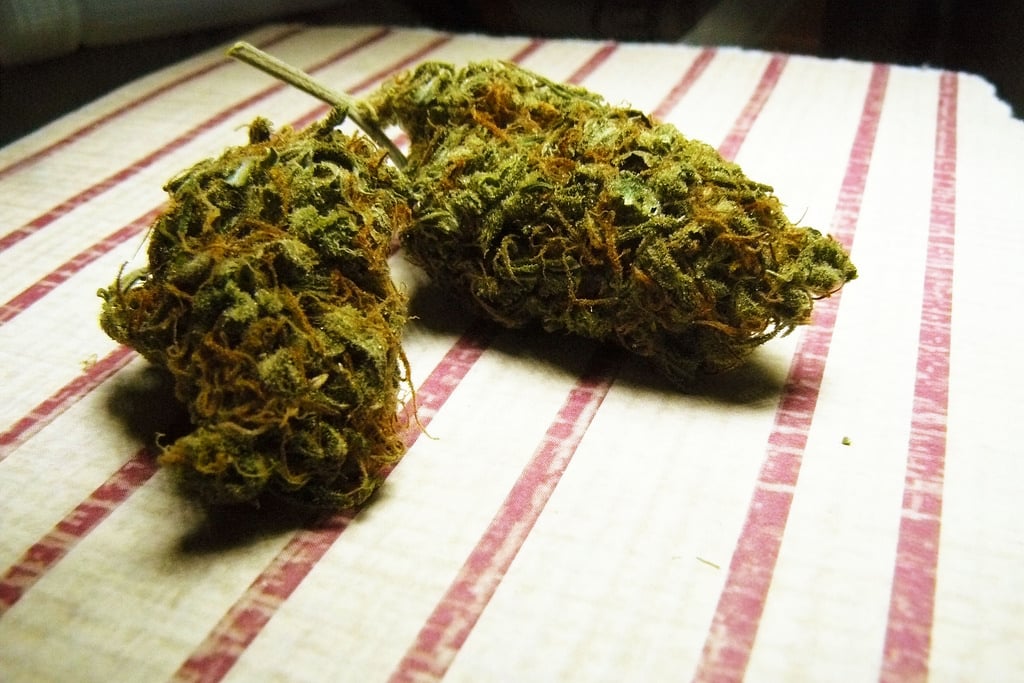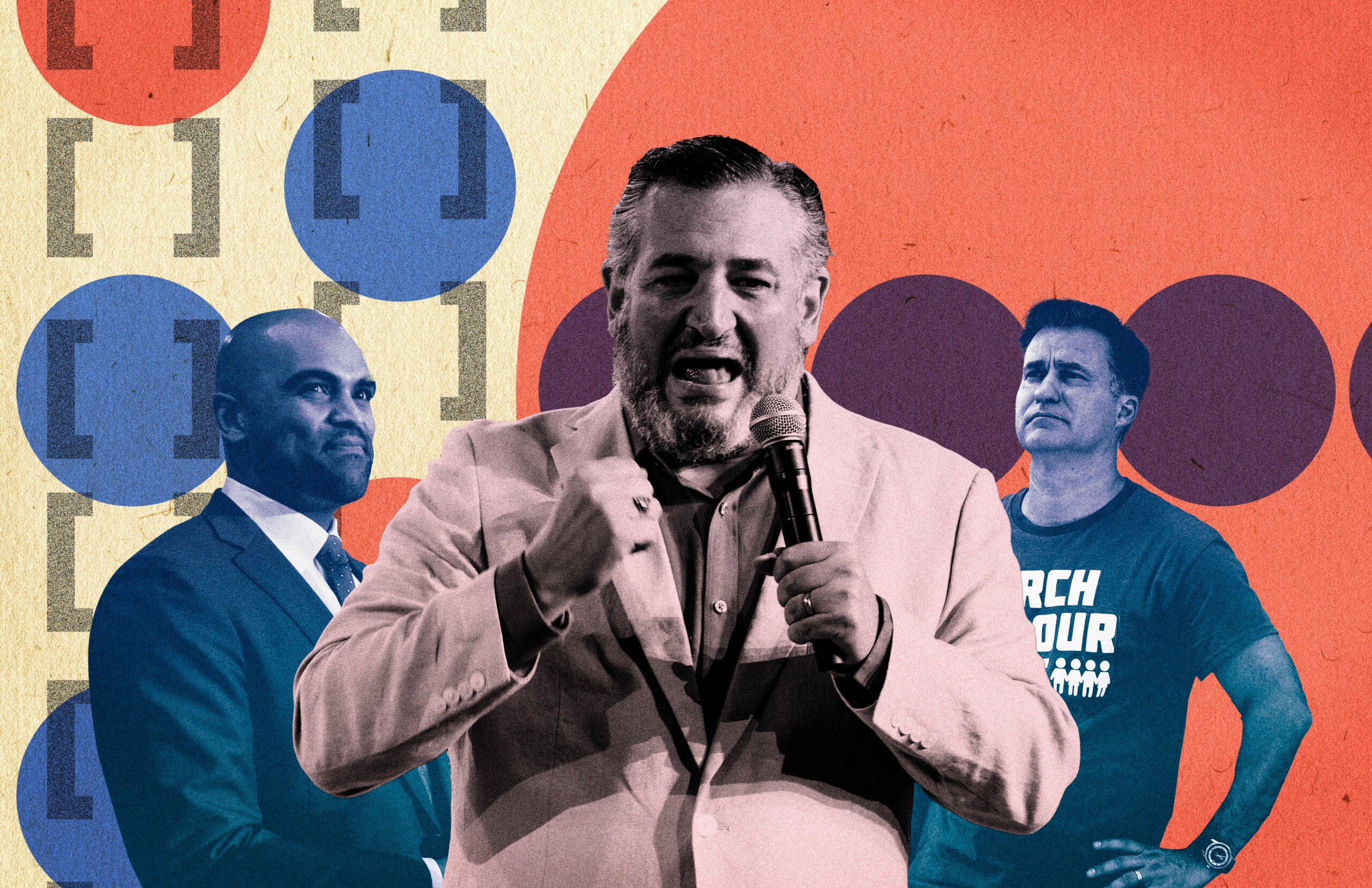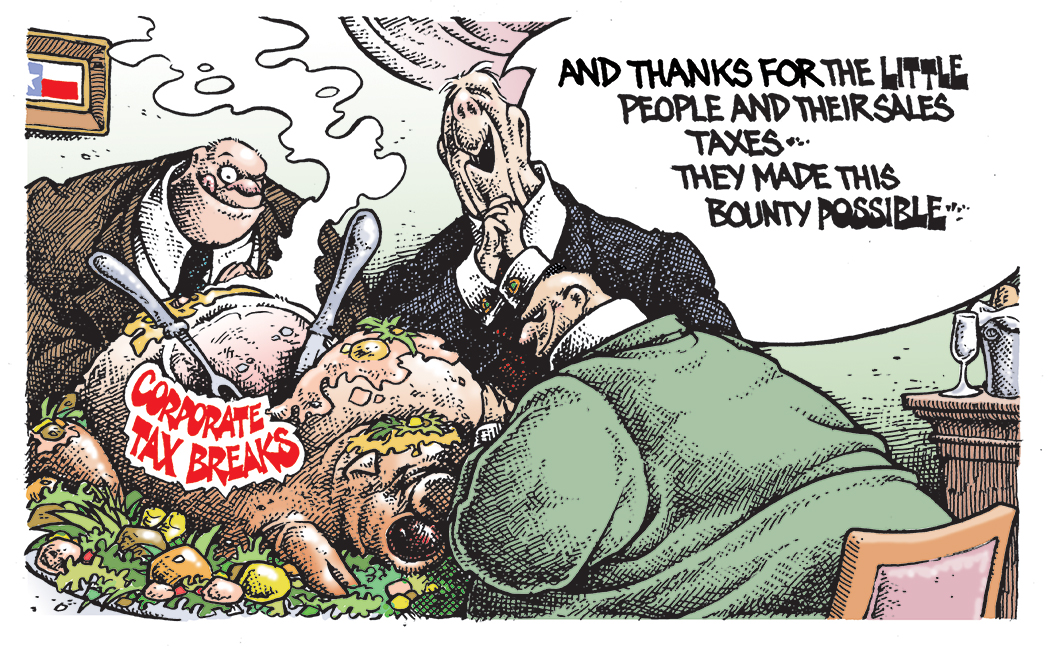
In Historic Vote, Texas House OKs Bill to Soften Penalties for Marijuana Possession
Despite approval in the House, a powerful Senate Democrat, Lieutenant Governor Dan Patrick and Governor Greg Abbott could still stand in the way of the proposal becoming law.

Above: “This kind of proposal is a modest approach that will do a significant amount of good in our state,” said Heather Fazio, director of Texans for Responsible Marijuana Policy.
UPDATE: On Tuesday, Lieutenant Governor Dan Patrick said on Twitter that House Bill 63 is “dead in the Texas Senate,” further confirming what Democratic state Senator John Whitmire previously told the Observer.
The Texas House tentatively approved a bill on Monday that would reduce criminal penalties for low-level marijuana possession, but its future in the Senate is uncertain.
House Bill 63, by state Representative Joe Moody, D-El Paso, would reduce possession of an ounce or less of marijuana from a Class B misdemeanor, which carries a punishment of up to six months of jail, to a Class C misdemeanor, which does not carry jail time. The bill, which tentatively passed on a vote of 98-43, would prohibit law enforcement officers from arresting people who allegedly are in possession of an ounce or less of pot if that’s their only offense and require courts to expunge offenders’ records if they meet all probation requirements.
The original bill would have downgraded the crime to a civil offense with a fine of up to $250; that penalty would have prevented violators from incurring a criminal record, which can lead to a driver’s license suspension, loss of student financial aid and greater difficulty in finding a job or housing. But Moody upped the punishment through an amendment to win more Republican support.
Governor Greg Abbott said in a September 2018 debate that he was open to reducing possession of marijuana from a Class B misdemeanor to a Class C — this exact reform. But in recent weeks, Abbott has made a public show of disapproval of progressive changes in the Dallas prosecutor’s office, raising questions about his appetite for criminal justice reform.

This is the third session that Moody has filed the bill, and it’s the first time the measure made it to the House floor after passing through committee the previous two sessions. The last time the Legislature passed — or even debated in the full House or Senate — marijuana reform legislation was in 1973, when possession of 4 ounces or less was reduced from a felony to a misdemeanor.
The only lawmaker who spoke in opposition of the bill was Magnolia Republican Cecil Bell Jr., who posited that lowering the current penalty to a citation-only offense would “basically legalize” marijuana use for those who could afford to pay off fines.
“When something is a criminal sanction, Mr. Bell, it is against the law and therefore illegal, so this is not legalizing anything,” Moody said. “Under that same argument, speeding is legal, an open container is legal, any other Class C criminal offense is legal. And I reject that. I think you’re misleading the body.”
Moody said enforcement of marijuana prohibition costs Texas $734 million a year and lands 75,000 people in jail. He added that the criminal justice system as a whole disproportionately harms poor people, especially people of color, which Bell disputed.
Bell then asked if marijuana is a gateway drug, and Moody replied that it’s not. Research has not shown that marijuana is more likely than alcohol or nicotine to make users more susceptible to cocaine use, and the majority of marijuana users do not go on to use harder substances.
Bell was not convinced, citing examples from his high school in East Texas in the early ’70s. Bell ended with: “I just want to be clear to this body. If you vote for this, you’re voting to legalize marijuana.”
Advocacy groups such as Texans for Responsible Marijuana Policy had pushed for the lower civil penalty, but Heather Fazio, director of the organization, said the group supports the compromise of a Class C misdemeanor. “The revised version of the bill still meets the objective we’ve been trying to accomplish. It allows someone the opportunity to avoid a criminal record for a small amount of marijuana,” she said. “This kind of proposal is a modest approach that will do a significant amount of good in our state.”
Fazio expects the legislation to face a rockier road in the more conservative Senate, where marijuana reform measures have stalled in committee this session. But she hopes that the House’s passage will encourage the upper chamber to move forward.
HB 63 will move on to a final House vote this week before it is referred to a Senate committee.

Senator John Whitmire, D-Houston, chairs the upper chamber’s criminal justice committee, where a similar bill by El Paso Democrat José Rodríguez was referred earlier this session. Though Whitmire has openly supported marijuana reform, he did not grant Rodríguez’s bill a hearing and indicated in an interview with the Observer that he may give the same treatment to HB 63.
It’s “impressive” that Moody’s bill even made it to a floor debate, Whitmire said, but added that he doesn’t see an appetite for such reform in the Senate. “I try not to bring issues that are going to be time-consuming if they’re not going to get support,” Whitmire said. “At this stage, time is value. I still don’t want to do a show-and-tell. I’d like to have a hearing on something that’s got some traction.”
Moody hopes the changes to the bill will give the proposal a better shot of passing the Senate, though he knows the upper chamber is a “different animal.”
“I truly believe that the [original] bill as a decriminalization effort could’ve passed this floor. I think that’s where the conversation would’ve ended, unfortunately,” Moody told the Observer. “Ultimately, I’m here to get a result for the people that are affected by this, and ending the conversation on the House floor doesn’t solve that problem for them.”
GOP legislators’ opposition to softening marijuana laws persists even after years of favorable testimony at the Capitol, and after the Republican Party of Texas in 2018 endorsed imposing a civil penalty instead of a criminal one. As public perception of the drug shifts, Moody said, “I would hope … that we would start to see more courage on some people’s part to change this policy, because it’s an enormous waste of taxpayer resources in a time when we’re talking about skyrocketing taxes.”
Correction: This story initially reported that 1971 was the last time a full chamber of the Texas Legislature debated reducing marijuana penalties, based on research provided by the Texas Legislative Reference Library. In fact, a bill was passed in 1973 to reduce possession of 4 ounces or less from a felony to a misdemeanor. The Observer regrets this error.


